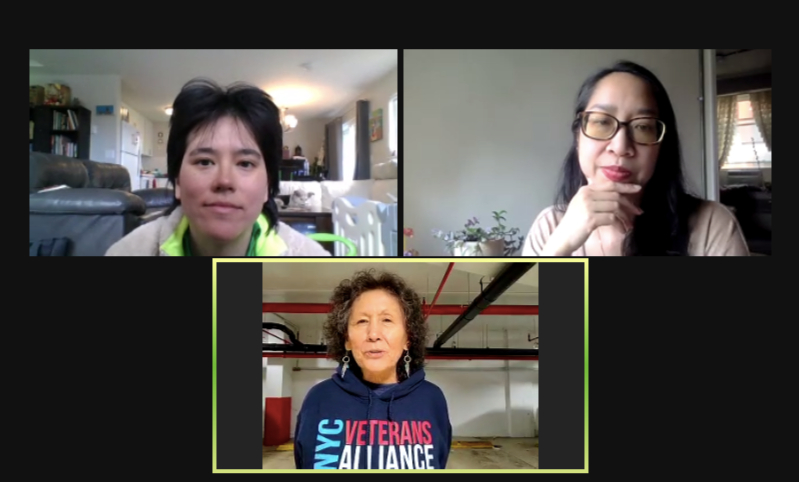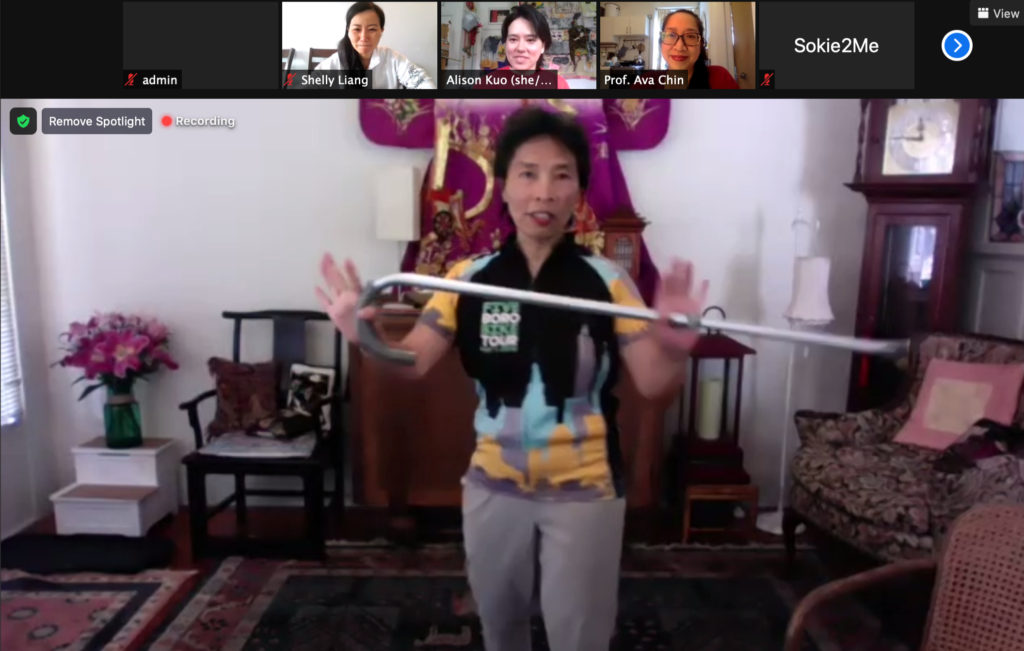For a year, it was in the air. Then an influx of racism against Asian Americans came to a head in March, when shootings in Atlanta killed six Asian women and videos emerged showing senior Asian Americans being attacked.
That was when Alison Kuo noticed something on social media that gave her pause.
Kuo, an artist who lives in the Crown Heights neighborhood of Brooklyn, saw members of a Facebook group for New York’s Chinatown discussing pepper spray, Tasers and other weapons.
As she saw more posts on where to find pepper spray and which weapons were legal to carry in New York, she was reminded of her kung fu training. As a teenager growing up in Texas, Kuo’s kung fu background made her feel confident that she could take care of herself. Those lessons had also instilled in her that things like pepper spray and stun guns can be dangerous to the person carrying them.
“It’s really not going to fix the problem that we’re having just to give your 70 or 80-year-old grandmother a thing of pepper spray and not talk to her about how to use it and how to carry it safely,” said Kuo, who works as the art residency manager at the International Studio and Curatorial Program, a nonprofit in Brooklyn. “Anytime you’re using something like that it can backfire on you.”
In April, Kuo and Ava Chin, an author and associate professor at the College of Staten Island, started Sisters in Self-Defense to provide self-defense classes centered around Asian American women’s experiences. The group aims to bridge a generational gap in New York’s Chinatown community and to make martial arts accessible to people in their 50s and older.

Sisters in Self-Defense is one of the groups that have popped up around the country this year to empower Asian Americans, especially women, with trainings on how to protect themselves. These groups teach self-defense or firearm safety skills in response to racist rhetoric and assaults against Asian Americans – acts that have always occurred but have increased during the pandemic.
“A lot of women in particular knew this existed but never understood that it could escalate to this level, and a lot of folks are now looking into where this is all coming from, learning for the first time that there’s actually a very long, at least a 300-year history, behind all of this,” said E Lim, the organizing and civic engagement director for Asian Americans Advancing Justice in Atlanta.
Last year, hate crimes against Asian Americans increased about 150% in 16 cities in the United States, even as overall hate crimes fell, according to data from the Center for the Study of Hate and Extremism at California State University in San Bernardino.
In Oklahoma City, Asian District Cultural Association president Thuan Nguyen said that the Asian District neighborhood has experienced an uptick in vandalism, with rocks thrown through the windows of several businesses since last year.
“Nothing like this has ever happened,” Nguyen said.
In response to this year’s events, YWCA Oklahoma City has led bystander intervention training, and Nguyen said that a group is being developed to build on the Asian community’s relationship with the police department.
At the state level, Asian District leaders are also advocating for health data to contain more detail when it comes to race. Health data broken down by race and ethnicity often groups Asian Americans into a single, broad category.
“We are not a monolithic community,” Nguyen said. “We’re a community made up of different nationalities, different races, and so for that, we need to be heard and not just be as one.”
Census data compiled by nonprofit AAPI Data shows that Asian American ethnicities have widespread wealth disparities, but issues like poverty can be obscured by the overarching Asian American category and the model minority myth that Asians are universally successful.
“I think it’s important to recognize there is power in pan-Asian identity, but that pan-Asian identity has also been used to erase so many individuals who don’t fit into the model minority narrative,” Lim said.
After the shootings in Atlanta, Lim said their organization has led bystander trainings, and they’re getting requests for self-defense classes. Women in the community also are pursuing firearm trainings and exploring how to protect themselves in a state where guns are loosely regulated, Lim said.
“A lot of women in particular are finding that if the opposition, especially in recent protests, are going to show up with guns, threaten people with guns and potentially kill people with guns, folks don’t want to show up without something to protect themselves, and that might be firearms,” Lim said.
Others are rejecting weapons in favor of traditional self-defense tactics.
During the first class for Sisters in Self-Defense, 60 students ranging from 20 to 70 years old met on Zoom to learn strategies on how to avoid and escape dangerous situations. The students call each other “sis,” the acronym for the group, but Kuo says it also reflects that everyone is training each other.
“Women are always aware of protecting themselves and looking out for each other,” Kuo said. “People should know that we’re not here to be victimized and that we’re not … going to depend on the presence of a bystander to save us. If people mess with us, then we’re going to be prepared.”
Mollie Bryant, editor of BigIfTrue.org, can be reached at 405-990-0988 or bryant@bigiftrue.org. Follow her on Twitter.
Big If True is a 501(c)(3) news nonprofit based in Oklahoma City, and you can support our independent journalism here.


